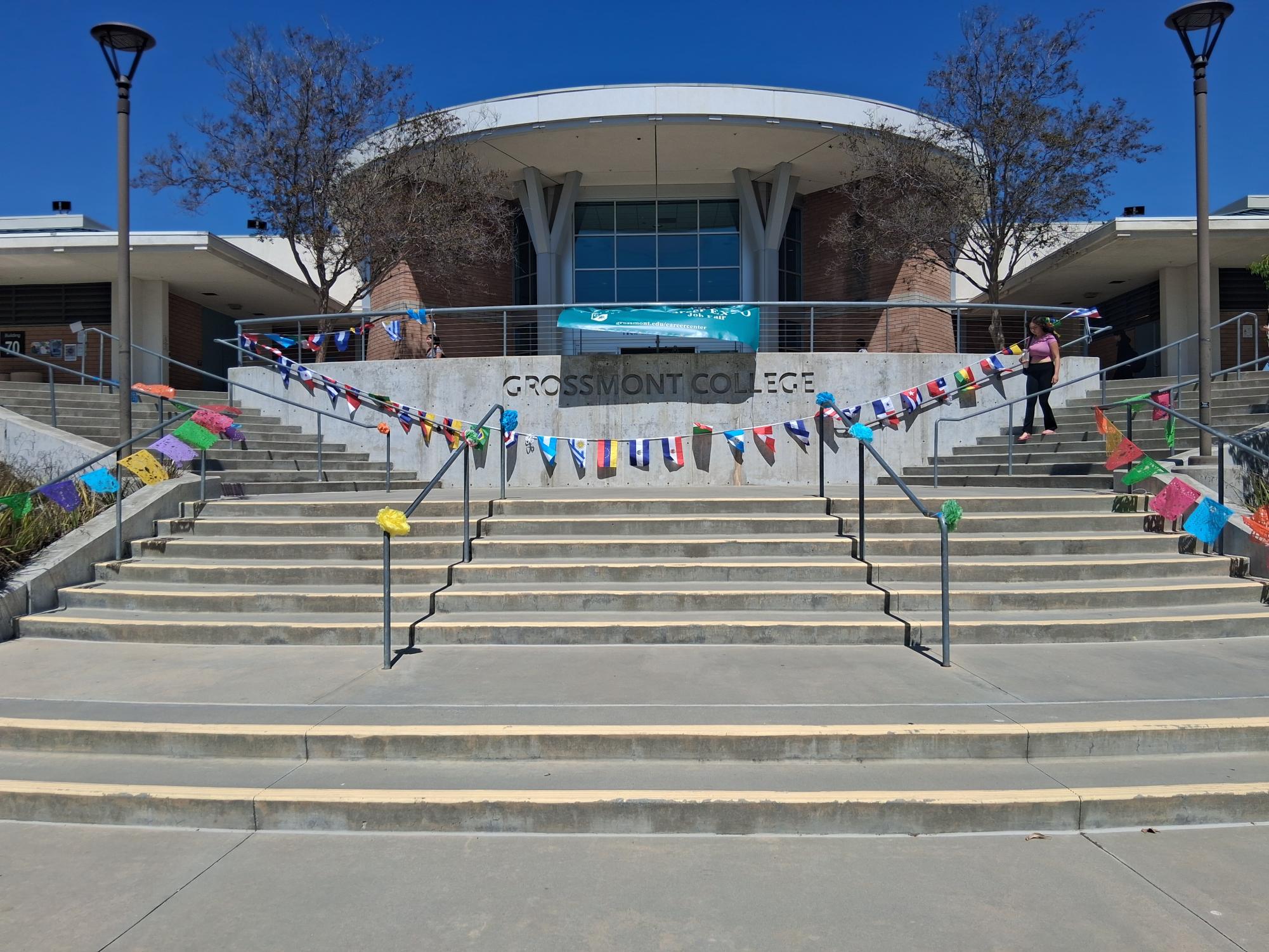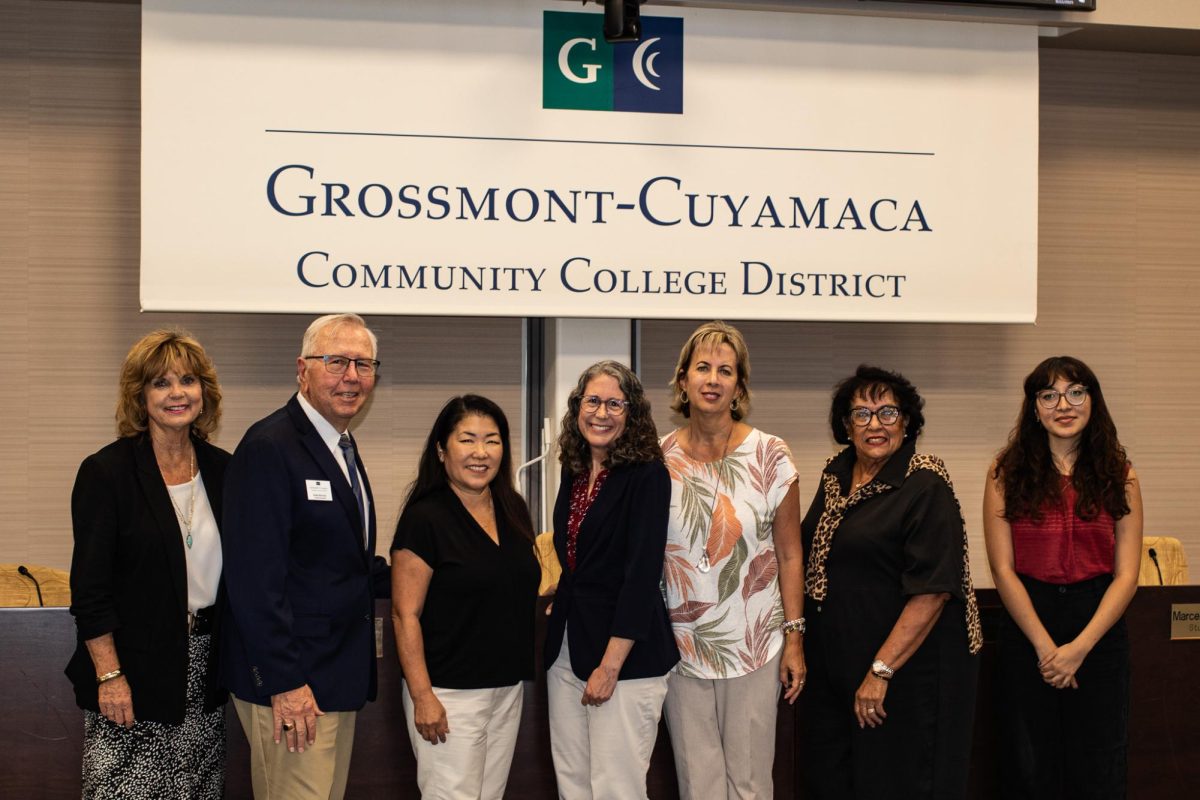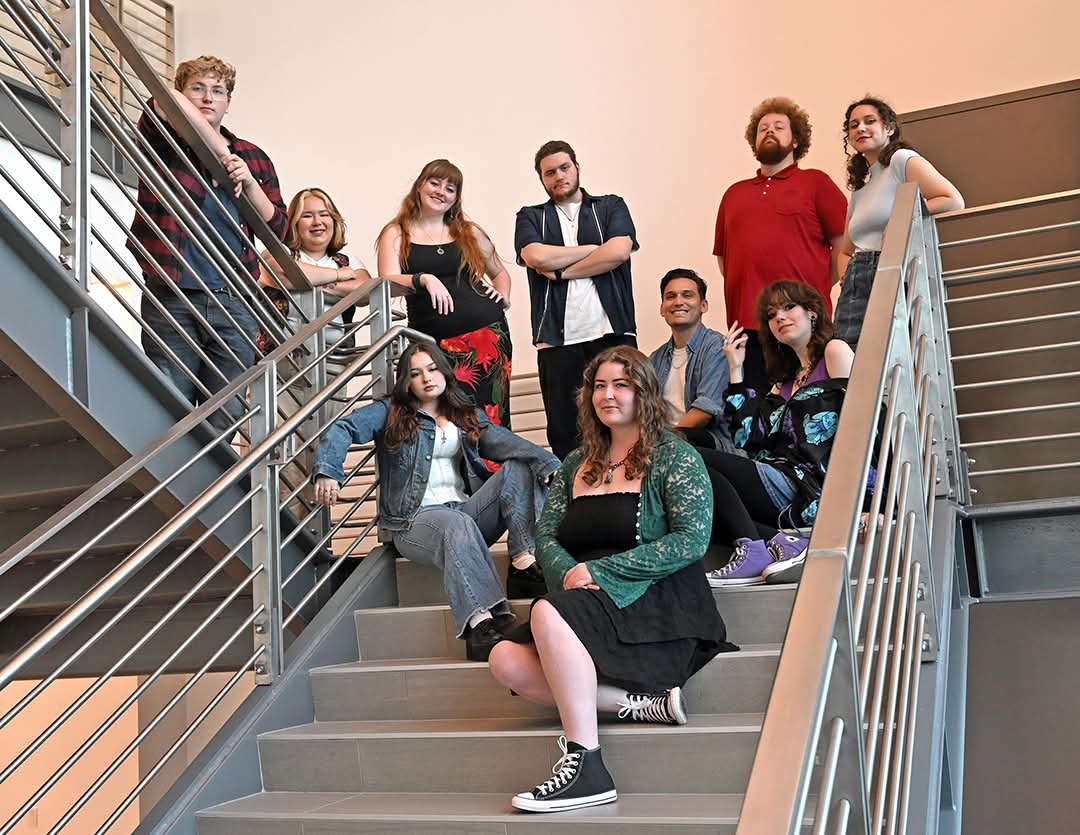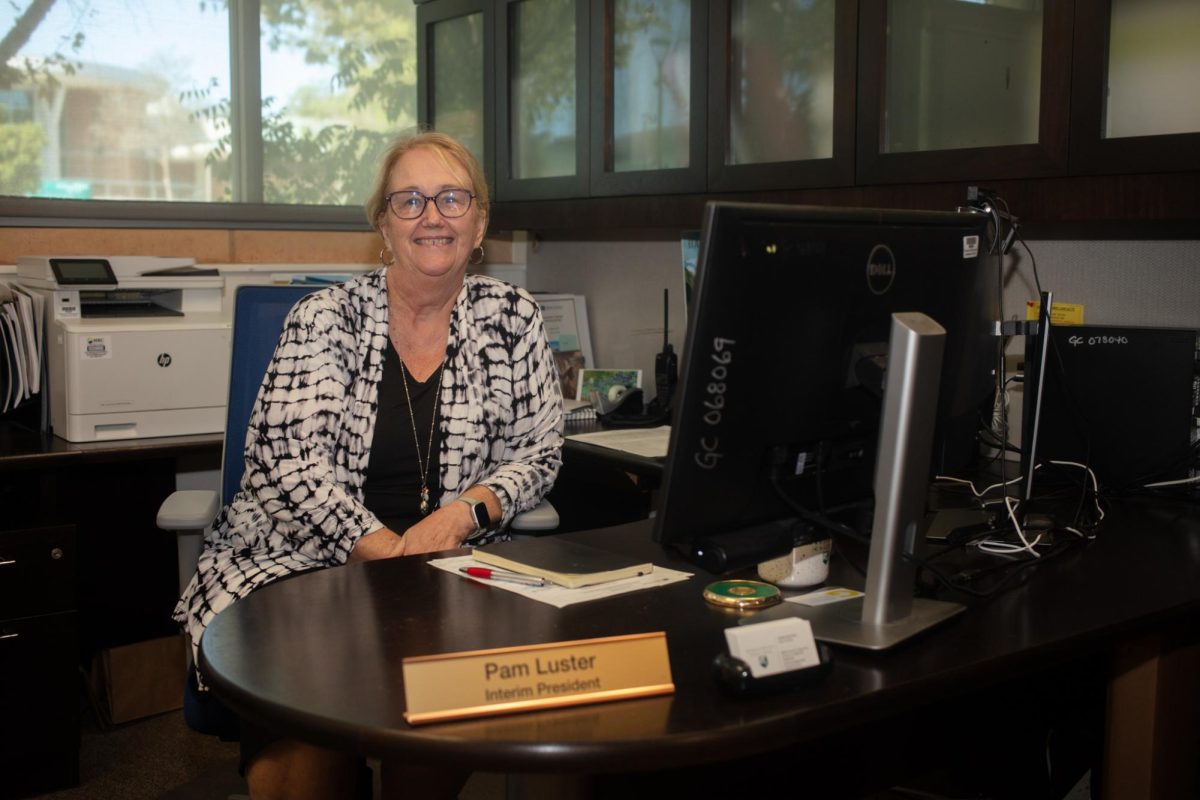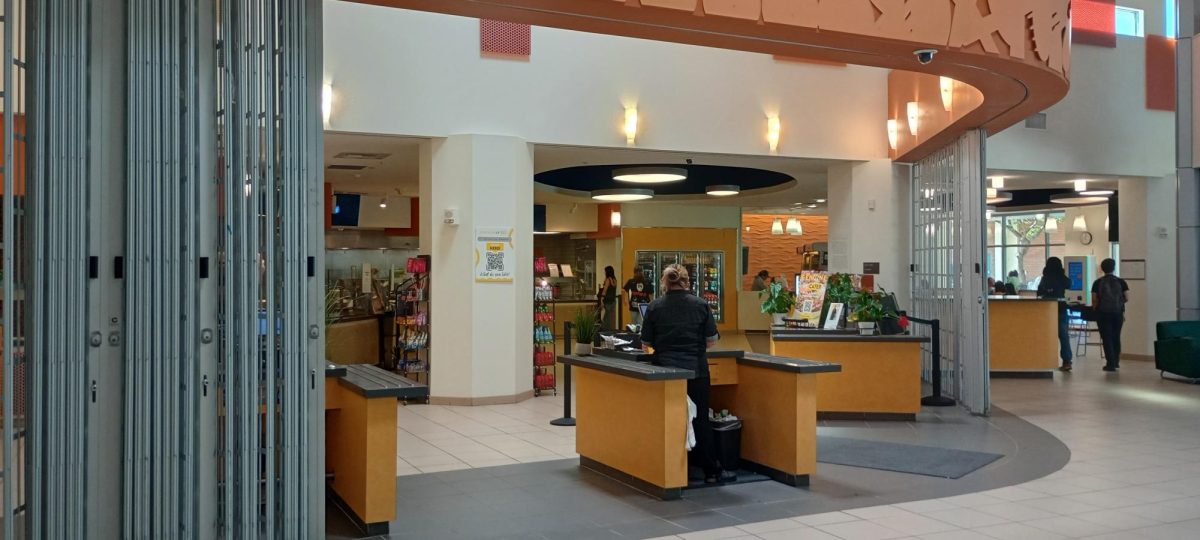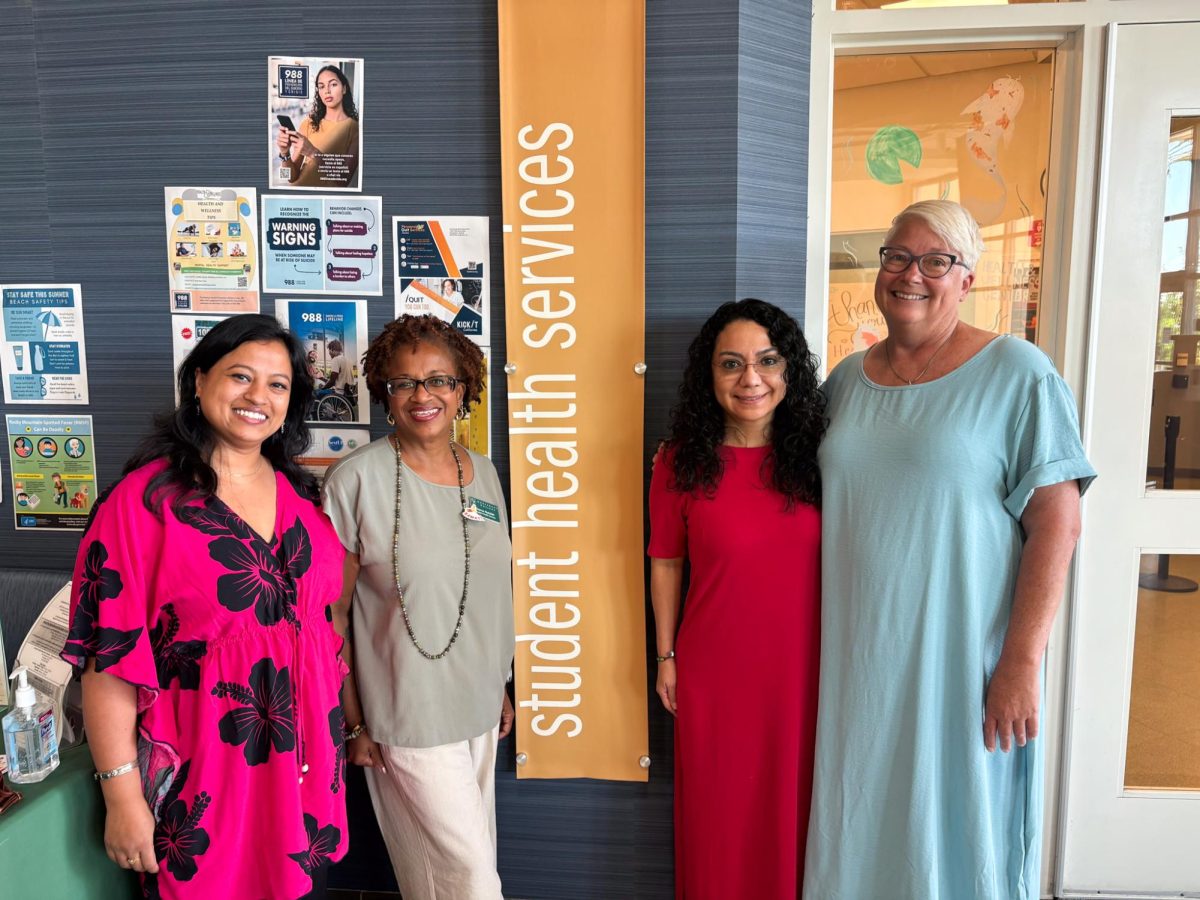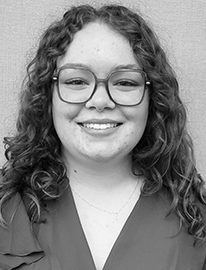Grossmont faculty are uplifting the voices of the Latine community by celebrating Latine Heritage Month, despite a political climate currently trying to silence it.
Dr. Victoria Rodriguez, the dean of Equity and Student Success and host of the events, said the purpose is for students to see themselves represented.
National Hispanic Heritage Month, which runs from Sept. 15 to Oct. 15, celebrates the culture and voice of people with roots in Latin America. This year, Grossmont extended its celebration through Oct. 28 to provide more opportunities for students to celebrate their heritage with their communities, and used the gender-neutral term “Latine” to be even more inclusive.
Grossmont has celebrated this month for several years. Each time, the school offers activities and community events that celebrate Latine heritage and amplify the voices of Latine Americans across a wide range of educational and artistic fields.
Students can look forward to two remaining Latine Heritage Month events on campus: The Día de Muertos Celebration and the “Leading Latinx Voices of Power and Purpose” Panel. These campus events, discussions and hands-on activities offer the Latine community a supportive space to share their voices.
The Bigger Picture
While campus events uplift the local community, they’re part of a much larger story of empowerment and activism across America. Communities across the U.S. are making their voices heard.
Individuals from the Hispanic and Latine communities have come together, marching, boycotting and engaging in school walkouts, chanting to achieve recognition and respect. Many of these marches have gained national attention, inspiring other communities that have similar treatment to take action for the civil and political rights of the Latine American community.
These marches called for change, including civil rights and an end to discrimination, as well as better working and living conditions for Hispanic and Latine communities in America. They also emphasized the importance of cultural identity for Latin Americans across generations.
The movement remains strong in many forms, drawing attention from various artists, such as Los Tigres del Norte, a norteño band, which voices their activism on behalf of the community. Many artists have given Hispanic and Latine American immigrants a voice through their art.
This kind of activism is essential year-round and especially meaningful during Latine Heritage Month.
Anthony Berumen, who grew up Mexican-American, said, “Hispanic Heritage Month reminds everyone of our beginnings, our culture, and the role we’ve played in shaping the nation.”
Berumen added his experience growing up Mexican in the U.S. was “both different and similar to others.” Growing up in both countries, he said that in America, he felt discriminated against because he was enrolled in an English Learning Development program despite being an English speaker.
Creating a safe space for Latine Americans to share their experience will dismantle stereotypes such as the ones Berumen faced.
“People often think we’re only religious, or that we all work construction, labor jobs, or in the dirt. But we’re smart, capable, and can be anything,” Berumen said. “We don’t all live the same life.”
These stereotypes not only affect Americans’ perceptions, but they can also lead to real harm.
Athena Estrada, a Latina American, said she feels ashamed of how hateful America has become toward the community this year. She said it’s as if America is instigating the people who hate her ethnicity. She added that the hate is “one-sided.”
“There’s no way to ensure it will end or how to be safe,” Estrada said.
Latine Americans are being targeted all over the country, being told they don’t belong when many of them are legal citizens. As an American citizen, Berumen said what worries him the most is his own country, specifically the media outlets and politicians sharing information about his community with the public.
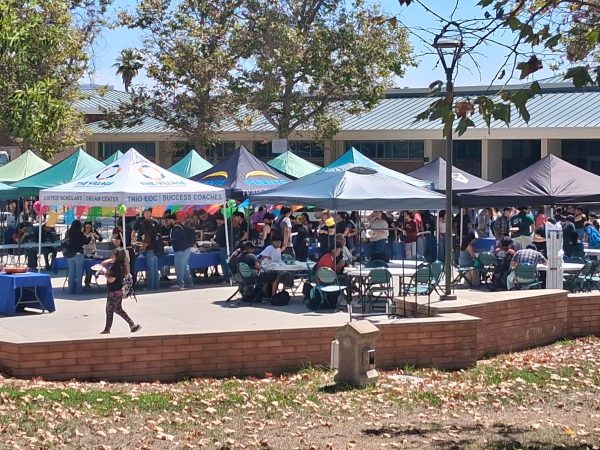
A Safe Space
Kristina Esquivel, a Cuyamaca student of Mexican descent, said the current political climate makes her feel the need to carry identification.
Grossmont shows its advocacy for students by offering students “Know Your Rights” red cards in the Student Services offices. The cards contain information on constitutional rights for undocumented and documented individuals.
Lorena Montero-Abrams, a lab technician in the Administration of Justice Program, said at the opening fair for Latine Heritage Month, that many faculty members advocate for these events because they don’t want students to feel alone and scared during a time when it may feel intimidating to share one’s heritage.
When asked what she loves about celebrating her culture, Rodriguez said it “reminds me of home, reminds me of why I do what I do.”
“These events can be a place that can give a sense of belonging and be empowering,” said Isabel, a Grossmont student who asked her last name not be used. “Especially in the political climate, right now.”
She added that her generation is the next with the power to promote impactful celebrations of heritage in politics.
The Día de Muertos Celebration will take place on Oct. 21, from 1 to 2 p.m., in The Village (Building 70). “The Leading Latinx Voices of Power and Purpose” Panel will be hosted on Oct. 28 from 11 a.m. to 1 p.m. in Griffin Gate (Building 60). RSVP at tinyurl.com/FA25LX.



